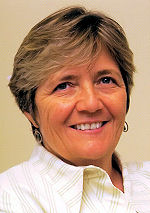By Maurice Possley and Kathleen Ridolfi
Special to the Mercury News
In a remarkable ruling, a California federal appeals court has set aside the conviction, prison sentence and $200,000 fine assessed against Prabhat Goyal, the former chief financial officer of a Silicon Valley software firm who had been found guilty by a jury of charges he misstated revenue and lied to auditors.
The court didn’t just reverse the case for a new trial, it threw it out completely. The author of the ruling, 9th Circuit U.S. Court of Appeals Judge Richard Clifton, wrote in the December decision, “Even viewing the evidence in the light most favorable to the prosecution, no reasonable juror could have found Goyal guilty beyond a reasonable doubt of any of the charges against him.”
In other words, there was no evidence of a crime.
The case, another in a string of imploded federal prosecutions, makes Goyal the latest victim of overzealous prosecutors.
His prosecution so angered another member of the three-judge panel, Judge Alex Kozinski, that he wrote a blistering concurring opinion that should be required reading for every prosecutor in America.
“This is just one of a string of recent cases in which courts have found that federal prosecutors overreached by trying to stretch criminal law beyond its proper bounds,” Kozinski said, pointing to cases brought against former accounting giant Arthur Anderson and the prosecution of former Brocade executive Gregory Reyes, among others.
In the recent spate of white-collar cases in which courts declared misconduct was committed, not one prosecutor has yet been held to answer for it. The only cost has been to remove the case from the victory column — a consequence that too many prosecutors find well worth the risk.Goyal was the former chief financial officer of Network Associates, a Santa Clara-based software manufacturing firm that later became known as McAfee. In 2004, he was accused of securities fraud and making false statements. Convicted in 2007, Goyal was sentenced to a year and a day in prison and fined $200,000.
“(C)riminal law should clearly separate conduct that is criminal from conduct that is legal,” Kozinski wrote. “That is not only because of the dire consequences of a conviction — including disenfranchisement, incarceration and even deportation — but also because criminal law represents the community’s sense of the type of behavior that merits the moral condemnation of society.
“When prosecutors have to stretch law or the evidence to secure a conviction, as they did here, it can hardly be said that such moral judgment is warranted,” Kozinski wrote.
In October 2010, the Northern California Innocence Project published, “Preventable Error: A Report on Prosecutorial Misconduct in California 1997-2009,” which identified more than 700 cases where courts had found misconduct. Of those, only seven prosecutors were disciplined.
Prosecutorial misconduct fundamentally perverts justice and costs taxpayers millions of dollars. It undermines our trust in the justice system and subverts the notion that we are a fair society.
Yet, until recently, in the vast majority of cases, courts and agencies charged with overseeing attorney conduct have failed to acknowledge it, let alone do anything to deter it.
More than six years after he was charged, Goyal has been exonerated, but at a steep cost to him, to the public, and to the criminal justice system.
“That is not the way criminal law is supposed to work,” the judge said.
KATHLEEN RIDOLFI is executive director of the Northern California Innocence Project at Santa Clara University School of Law. MAURICE POSSLEY, a Pulitzer Prize winning former investigative reporter for the Chicago Tribune, is an investigator and researcher with the project. They wrote this article for this newspaper.




You must be logged in to post a comment.